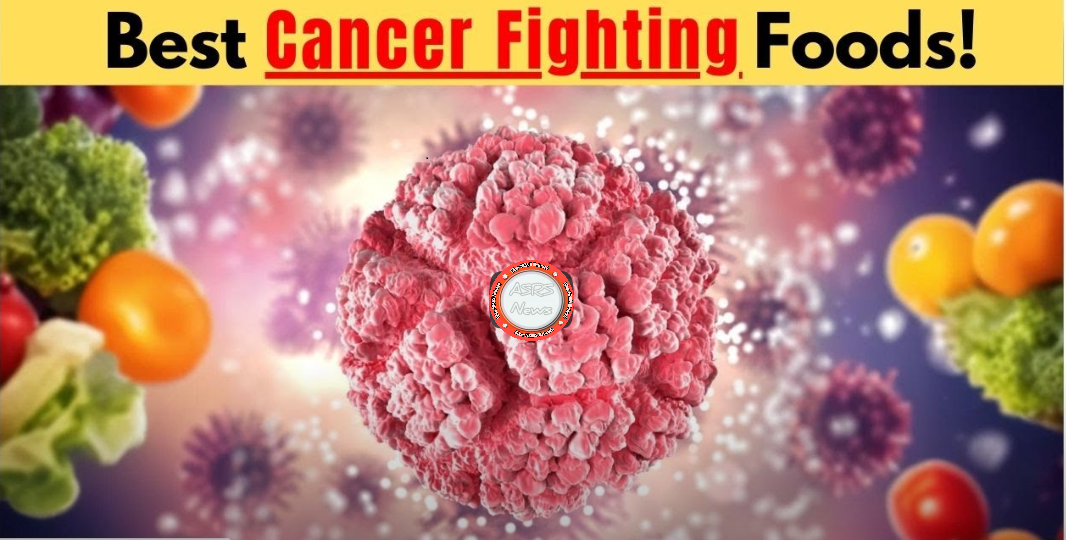This article discusses the seven deadliest types of cancer and the specific foods that can help reduce the risk of each type. It also summarizes the top seven cancer-fighting foods that are beneficial across multiple cancer types, emphasizing the importance of diet in cancer prevention.
7 Foods That Combat 7 Types of Cancer
Cancer is a pervasive disease that affects millions of people worldwide. With various types of cancer, each presenting unique challenges, understanding how diet can influence cancer risk is crucial. In this article, we will explore the seven deadliest cancers and the specific foods that can help reduce the risk associated with each type. We will also summarize the top seven cancer-fighting foods that are beneficial across multiple cancer types.
Overview of Deadly Cancers
Prostate Cancer
Prostate cancer is one of the least deadly cancers, primarily affecting men over the age of 50. It has a high survival rate, especially when detected early through PSA screenings. The slow progression of many prostate cancers allows for effective treatment options such as surgery and radiation.
Foods to Fight Prostate Cancer
- Tomatoes: High in lycopene, an antioxidant linked to a lower risk of prostate cancer. Cooking tomatoes with olive oil enhances lycopene absorption.
- Green Tea: Contains EGCG, which may inhibit prostate cancer cell growth.
- Pumpkin Seeds: Rich in zinc, supporting prostate health and potentially reducing enlargement.
- Pomegranates: Contain antioxidants like ellagic acid that may slow cancer cell growth.
- Cruciferous Vegetables: Broccoli and cauliflower contain sulforaphane, which helps inhibit cancer cell growth.
Pancreatic Cancer
Pancreatic cancer, known for its poor prognosis, is often diagnosed late, making it difficult to treat. It is crucial to manage blood sugar levels to reduce the risk.
Foods to Fight Pancreatic Cancer
- Cruciferous Vegetables: Again, these vegetables help reduce inflammation and support liver detoxification.
- Leafy Greens: Spinach and kale are rich in antioxidants that protect cells from DNA damage.
- Berries: Blueberries and raspberries are high in antioxidants that reduce oxidative stress.
- Turmeric: Contains curcumin, which has anti-inflammatory properties.
- Garlic: Supports detoxification and boosts the immune response.
- Fatty Fish: Salmon and sardines are rich in omega-3 fatty acids, which are anti-inflammatory.
- Fiber-Rich Foods: Whole grains and legumes help regulate blood sugar levels.
Breast Cancer
Breast cancer is the most common cancer among women and can be aggressive. Early detection significantly improves treatment outcomes.
Foods to Fight Breast Cancer
- Soy Foods: Tofu and tempeh contain isoflavones that may reduce the risk of hormone-related breast cancers.
- Flax Seeds: High in lignans, which can help modulate estrogen levels.
- Berries: Again, these fruits provide antioxidants that protect cells.
- Cruciferous Vegetables: Support healthy estrogen metabolism.
- Fatty Fish: Omega-3 fatty acids help reduce inflammation.
Stomach Cancer
Stomach cancer symptoms are often mild, leading to delayed diagnosis. Risk factors include diet and H. pylori infection.
Foods to Fight Stomach Cancer
- Ginger: Known for its anti-inflammatory effects.
- Garlic: Inhibits the growth of H. pylori.
- Leafy Greens: Protect against stomach cancer due to their fiber and antioxidant content.
- Berries: Combat free radicals and reduce cell damage.
- Turmeric: Inhibits cancer cell growth.
Liver Cancer
Liver cancer is often diagnosed at advanced stages due to limited early symptoms. Risk factors include hepatitis and alcohol consumption.
Foods to Fight Liver Cancer
- Coffee: May reduce the risk of liver cancer by reducing inflammation.
- Green Tea: Contains antioxidants that protect liver cells.
- Beets: Support liver detoxification.
- Cruciferous Vegetables: Protect against cancer cells.
- Berries: High in antioxidants that support liver health.
Colorectal Cancer
Colorectal cancer is the second leading cause of cancer deaths. Early detection through regular screenings is vital.
Foods to Fight Colorectal Cancer
- Whole Grains: High in fiber, supporting digestive health.
- Garlic and Onions: Help eliminate carcinogens.
- Leafy Greens: Packed with fiber and protective nutrients.
- Probiotic-Rich Foods: Support a healthy gut microbiome.
- Legumes: High in fiber and antioxidants.
Lung Cancer
Lung cancer is the leading cause of cancer death globally, often detected late. Smoking and air pollution are primary risk factors.
Foods to Fight Lung Cancer
- Turmeric: Contains curcumin, which may inhibit lung cancer growth.
- Cruciferous Vegetables: Protect cells from DNA damage.
- Green Tea: Contains EGCG, which helps block cancer cell growth.
- Ginger: Reduces inflammation.
- Citrus Fruits: High in vitamin C, protecting cells from damage.
Summary of Top Cancer-Fighting Foods
After discussing the specific foods for each type of cancer, here are the seven best cancer-fighting foods that can help combat multiple types of cancer:
- Cruciferous Vegetables: Effective against lung, liver, breast, and prostate cancers.
- Green Tea: Beneficial for lung, liver, stomach, breast, and prostate cancers.
- Berries: Protect against lung, stomach, liver, and breast cancers.
- Garlic and Onions: Good for colorectal, stomach, and lung cancers.
- Turmeric: Helpful for lung, stomach, and liver cancers.
- Tomatoes: Beneficial for stomach, prostate, and lung cancers.
- Leafy Green Vegetables: Effective against colorectal, stomach, and liver cancers.
Incorporating these foods into your diet can provide a protective measure against various types of cancer. A diet rich in these cancer-fighting foods can help reduce inflammation, combat oxidative stress, and support the body’s natural defenses against cancer. It is essential to share this information with others to promote a healthier lifestyle and potentially reduce cancer risk.

Now, let’s finish with a summary of the 7 best foods cancer-fighting foods.
Cruciferous Vegetables (e.g., broccoli, cauliflower, Brussels sprouts, cabbage)
Cancers: Lung, Colorectal, Liver, Breast, Prostate
Why: Rich in sulforaphane and indole-3-carbinol, compounds that support detoxification, protect DNA, and reduce cancer cell growth.
Green Tea
Cancers: Lung, Liver, Stomach, Breast, Prostate
Why: Contains EGCG, an antioxidant that cuts off blood supply to tumors (anti-angiogenesis) and has been shown to inhibit cancer cell growth and reduce inflammation. Berries (e.g., blueberries, strawberries, blackberries)
Cancers: Lung, Stomach, Liver, Breast Why: High in antioxidants like vitamin C and ellagic acid, which protect cells from oxidative stress and inhibit cancer cell spread. Garlic and Onions Cancers: Colorectal, Stomach, Lung
Why: These alliums contain sulfur compounds that aid in detoxification, enhance immune function, and may reduce the risk of various cancers by inhibiting carcinogens.
Turmeric
Cancers: Lung, Stomach, Liver
Why: Curcumin, the active compound in turmeric, has strong anti-inflammatory and antioxidant effects that help slow cancer cell growth and induce cancer cell death (apoptosis).
Tomatoes
Cancers: Stomach, Prostate, Lung
Why: Rich in lycopene, which has been shown to reduce the risk of prostate and other cancers by protecting cells from damage and inhibiting tumor growth.
Leafy Green Vegetables (e.g., spinach, kale, Swiss chard)
Cancers: Colorectal, Stomach, Liver
Why: High in fiber, folate, and antioxidants that support cellular health, immune function, and detoxification, reducing cancer risk.
These foods make a great foundation for a cancer-preventive diet, as their broad-spectrum benefits help reduce inflammation, combat oxidative stress, lower blood sugar and support the body’s natural defenses against cancer.
Including these foods regularly is a proactive way to guard against multiple types of cancer.
============== Thank you for reading.




